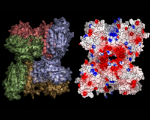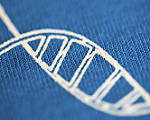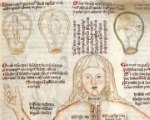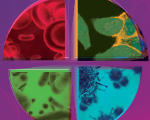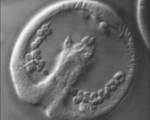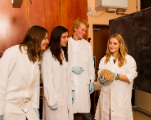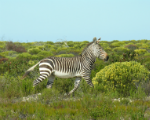Choosing your Major Subject
Application for the Major Subject is part of the Part II Allocations Procedure. The application needs to completed by mid-May. Some departments ask for additional information - check the Allocations Procedure website. Those who want to study BBS should select their preferred Department for their major subject, and then select 'BBS' in the consecutive question. Places will be allocated after the exams, and students should know if they have a place before the summer vacation.
On this page you will find information to help you choose your Major Subject:
- The list of Major Subjects with links to the department websites
- Details of the Major Subjects course formats
- Contact details of Major Subjects course organisers and teaching administrators
Neuroscience within the BBS Course
Departments offering BBS Major Subjects in 2025/26
Click on the tiles below to access the respective departmental webpages relating to the Major Subjects on offer.
| Subject | Course format | Modules offered |
|---|---|---|
Major Subjects Course Format for AY25-26 | ||
(Maximum 25 candidates) | Choose two modules for Michaelmas Term and two modules for Lent Term. | Michaelmas: (A) MT Genomics of Disease (B) MT Epidemiology and Control of Infectious Disease (C) MT Host-Pathogen Interactions (D) MT Immunology I* Lent: (E) LT Cancer Biology (F) LT Infectious disease: a one-health perspective (G) LT Virology (H) LT Immunology II* *Immunology I & II must be taken together |
(Maximum 15 candidates) | Same lectures as the single subject. | The course typically covers: Drug Discovery |
(Maximum 25 candidates across both options) Students must have taken MVST Part IB or NST Part IB Experimental Psychology to take this Major Subject. | Same lectures as the single subject | Students choose between one of the two options (A or B) detailed below. For both options, teaching is provided on statistics and experimental design; these skills are examined by compulsory questions in Paper 1. Paper 1 also tests the candidate's ability to relate and integrate information from different branches of the subject and includes questions on conceptual and historical issues in psychology. Option A In addition to Paper 1, teaching is provided in three broad sections: Students study material across all three courses. The lecture courses on offer may vary slightly from year to year. Option B Students will be required to take Paper 1 and will additionally take a combination of two papers offered by Psychology and one offered by PDN or Zoology, which will allow greater specialisation in psychology, neuroscience and behaviour. The modules offered may be subject to change each year and there will be limits on places in the optional PDN and Zoology modules. |
(Maximum 7 candidates) | The course is grouped into four 24 lecture modules, one of which has a branched structure to provide internal choice | Module A: Structural and Chemical Biology Module B: From Genome to Proteome Module C: Stem - The Dynamic Cell plus either: Branch 1 - Bioenergy OR Branch 2 - Molecular Microbiology of Infectious Disease Module D: Cell Cycle, Signalling and Cancer |
(Maximum of 8 candidates) | Choose two modules for Michaelmas Term and two modules for Lent Term. | Michaelmas: PLM1: Plant signalling networks in growth and development PLM2: Microbes: Evolution, genomes and lifestyle PLM3: Evolution and ecosystem dynamics ZM2: Conservation Science Lent: PLL1: Plant genomes and synthetic biology PLL2: Responses to global change PLL3: Exploiting plant metabolism ZL3: Evolution and Behaviour: Populations and Societies ZL4: Applied Ecology ZL5: Evolutionary Genetics and Adaptation |
(Maximum 10 candidates) | Choose four of the five modules offered for the single subject (two per term). | Michaelmas: Module 1: Genomes
Lent: Module 3: Genetics of Health & Disease |
Physiology, Development and Neuroscience (415) (Maximum 25 candidates) | Choose a total of four modules from the list. Alternatively, choose at least two N and/or P modules, and up to two more either from the list, or from the two modules offered by both Psychology and Zoology, (subject to availability). | Michaelmas: N1: Developmental Neurobiology N6: Higher Order Brain Function and Dysfunction |
(Maximum 25 candidates) | Choose two modules for Michaelmas Term and two modules for Lent Term. (The majority of combinations are available but please check with the Zoology Teaching Office for all permissible combinations) | Michaelmas: ZM1: Vertebrate Evolution [Shared with Earth Sciences] ZM2: Conservation Science ZM5: Evolution and Behaviour: Genes and Individuals ZM6: Cell Assembly and Interactions [Shared with PDN] ZM7: From Genome to Proteome [Borrowed from Biochemistry] ZM9: Developmental Neurobiology [Shared with PDN] ZM10: Early Development & Patterning: Genetics & Cellular Mechanisms [Shared with Genetics and PDN] PLM3: Evolution and Ecosystem Dynamics [Borrowed from Plant Sciences] Lent: ZL1: Evolution and Comparative Anatomy of Mammals ZL2: Responses to Global Change [Borrowed from Plant Sciences] ZL3: Evolution and Behaviour: Populations and Societies ZL4: Applied Ecology ZL5: Evolutionary Genetics and Adaptation [Shared with Genetics] ZL6: Development: Cell Differentiation and Organogenesis [Shared with PDN] ZL7: Cell Cycle, Signalling and Cancer [Borrowed from Biochemistry] |
Human Evolution, Ecology and Behaviour (429) (10+ candidates) | Two modules from B2, B3 and B4, and two optional modules from B11-13, and B15-17 | B2: Human Ecology and Behaviour The following are one term papers: B11: Quantitative Modelling in Archaeology and Biological Anthropology |
History and Philosophy of Science and Medicine (430) (Maximum 12 candidates)
| Four modules from the single subject | Early Medicine Modern Medicine and Biomedical Sciences Philosophy of Science and Medicine Ethics of Medicine |
| Course code | Course | Course Organiser | Teaching administrator | Email address |
|---|---|---|---|---|
Major Subjects Contact Details (AY25-26) | ||||
| 402 | Pathology | Dr Paolo D'Avino | Beatriz Jimenez Martin | teach@path.cam.ac.uk |
| 408 | Pharmacology | Dr David Bulmer | Christine Roberts | Undergrad@phar.cam.ac.uk |
| 409 | Psychology | Dr Jane Garrison | Kate Limond | teaching@psychol.cam.ac.uk |
| 411 | Biochemistry | Professor Chris Howe | Francesca Abete | ug-admin@bioc.cam.ac.uk |
| 412 | Plant Sciences | TBC | Katherine Maltby | ugadmin@plantsci.cam.ac.uk |
| 414 | Genetics | Dr Christine Farr | Amy Bains | undergrad.admin@gen.cam.ac.uk |
| 415 | Physiology, Development & Neuroscience (PDN) | Professor Amanda Sferruzzi-Perri Professor Hannah Clarke | Sophie Jones | part2@pdn.cam.ac.uk |
| 427 | Zoology | Professor Rufus Johnstone | Lizzie Burgess Barbara Chase | teaching@zoo.cam.ac.uk |
| 429 | Human Evolution, Ecology and Behaviour | Dr Enrico Crema | Max Wyatt | undergraduate-secretary@arch.cam.ac.uk |
| 430 | History and Philosophy of Science and Medicine | Dr Staffan Müller-Wille | Natalie McIntyre | ugadmin@hps.cam.ac.uk |

